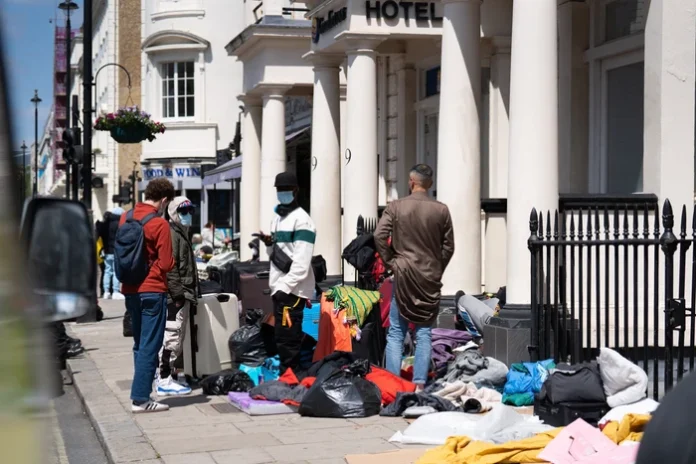Labour has pledged to end the practice of housing refugees in hotels, but due to a huge backlog of cases it is reported that it plans to reopen some facilities previously closed by the Conservative government.
Campaigners have called on the UK government to “immediately end” the accommodation of asylum seekers in hotels, fearing that many could become homeless amid the housing crisis.
Asylum seekers can spend up to three years in hotels waiting for their claims to be processed, which in places like Glasgow can exacerbate homelessness and overnight accommodation.
Gary Christie, head of policy, communications and communities at Scottish Refugee Council, told The Scotsman:
We want to see an immediate end to the use of hotel rooms and other types of temporary accommodation used for long-term housing. The idea of living in a hotel and the reality for people seeking asylum are worlds apart. Living on £1.36 a day and stripped of basic autonomy, like being able to choose what to eat for dinner or cook yourself a meal, we see first-hand how adverse an effect this type of accommodation has on people’s mental health. Isolated, banned from working and living in poverty, hotel living risks re-traumatising people who have already uprooted their lives to flee violence and persecution. People need a safe, secure place to call home where they can recover from these experiences and begin to rebuild their lives. This is not something a hotel room can provide.
The Refugee Council estimates the number of pending asylum claims could reach 118,063 in January as Labour abandoned plans to send migrants to Rwanda and reopened the application process.
An analysis of official figures, based on grant figures for the year to June, shows a further 62,801 people could be recognised as refugees in the UK, according to the migrant charity.
The charity based its findings on the subsidy rates used in the 12 months leading up to the election and examined how they applied to asylum seekers of different nationalities to arrive at its conclusions and a “working assumption” of what the figure might be.
The study also notes that the estimates were similar to the number of people granted refugee status in the year to June under the previous government.
Susain Aitken, leader of Glasgow City Council, said:
We have not been approached by the Home Office with information on whether any more asylum hotels will open in Glasgow. Whilst Glasgow has been greatly enriched by its role as a dispersal city over the past two decades, it is undeniable that the way in which the Home Office is now batch processing decisions followed by large scale evictions from asylum accommodation is a significant driver of a high number of refugees seeking support from homelessness services – and the city still is not receiving funding from the Home Office to support this. We remain willing to work with the Home Office to find a different way to process asylum claims which makes decisions quickly, limits the use of hotels, and enables asylum seekers to work.
